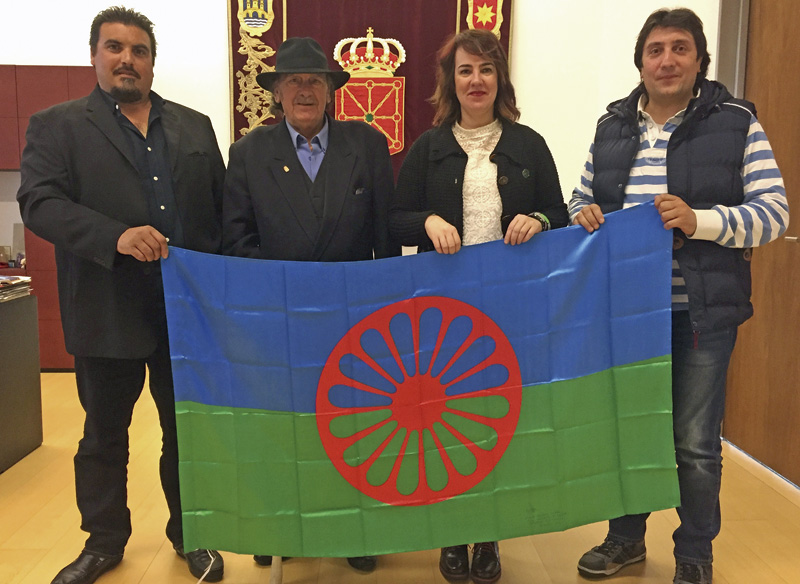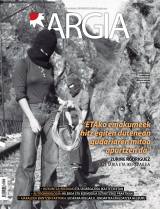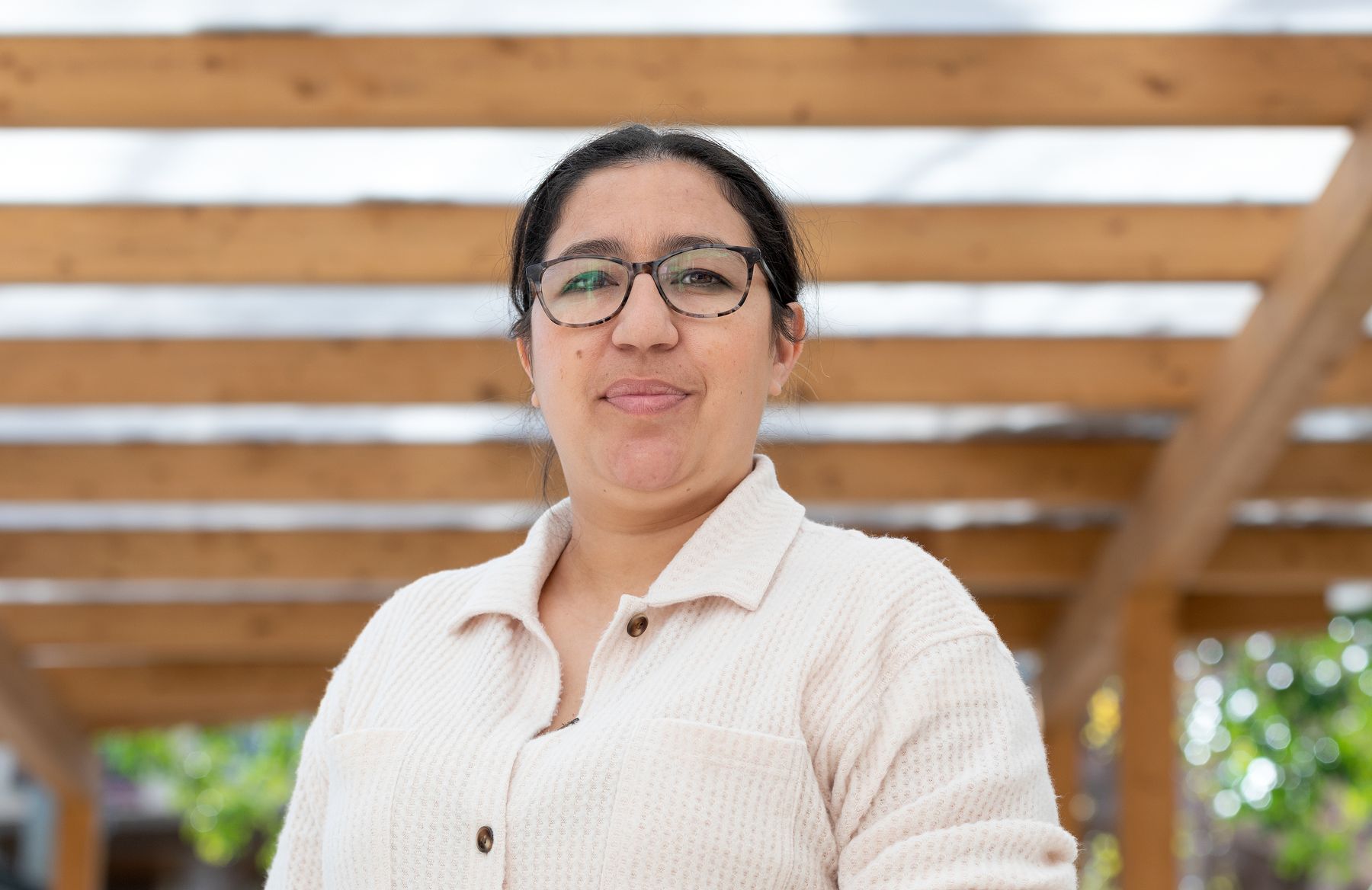"We want to have the ability to decide, so that it's not decided from the outside for us."
- This article is first written. We now call on Ricardo Hernández Jiménez, coordinator of the Navarra Federation of Gypsy Associations, Gaz Kaló. The organization was born in 2000 and since then is dedicated to publicizing the Roma culture and breaking stereotypes.

The Roma have been in this territory for over 500 years, but we are unknown to the majority of society. The first known Gypsies in Navarre dates back to 1435, when the White Queen of Navarre received the Gypsies in Olite. Today, we live about 7,000 people distributed across the territory, and as you can guess, we're a heterogeneous community. However, our cultures and realities are not sufficiently known, prejudices, stereotypes and false beliefs have been imposed.
We are living in a history of exclusion, discrimination and persecution; we have had no legal support until the end of Franco. What is more, the laws against us have been in force for years. A legal text of 1549 states that if Roma are found they will be punished and expelled and the situation worsened in the seventeenth century. Today we have achieved rights and the laws protect us, but often, in reality, things are not so easy and in the day to day we suffer attitudes that are contrary to us.
In Navarre, throughout the European Union, there is brutal racism and xenophobia, and together with other communities from different backgrounds, we are suffering one of the greatest situations of discrimination. This exclusion affects all areas of life, and proof of this is the school failure we have among our young people, the difficulties to access housing or work, or the refusal to enter some places because they are or imagine Gypsy.
Increase in cases of racism
We have recently seen several cases of this kind in Pamplona. In some bars in the Old Party the gatekeepers have not allowed access to the premises to some Roma, as their owners have given the order not to allow the passage to any Roma. Once these facts are known, we address the courts with members of SOS Racism and Ararteko, and the cases are being investigated.
We demand a revision of the laws so that such events do not occur, in order to prevent anyone from accessing public places because of origin, ethnicity, religion, sex, opinion, identity and other personal or social circumstances. The leisure spaces are open spaces, but what we ask is a revision of the Foral Decree 33/2011, established in the framework of the Foral Law 2/1989 of Navarra, which regulates the access and stay in these spaces.
On the occasion of these events, in February the City of Pamplona unanimously approved an institutional declaration against access bans. It has promised to revise the law and, with it, is committed to adopting control mechanisms that prevent impunity, that measures can be taken to respond to the damages caused to the victims and avoid their repetition.
Key partnership
That is why, in order to bring our culture and community closer together and to improve our image of ourselves, we are trying to promote cooperation and mutual knowledge between Roma and non-Roma through different projects. To this end, Gaz Kaló was born 18 years ago, with the objective of promoting the coordination of the Gypsy associations of Navarre, unifying criteria and bridging between the administration and society. We want to have the place, the protagonism and the decision-making capacity that corresponds to us, to be at the heart of the issues that concern us and to be active subjects, so that they do not decide for us from the outside. We talk about ourselves often and special policies are made for us, so we would not only like to be on the street, but also to be in the spaces where decisions are made.
It is clear that it is we who have to take the first step towards improving our image, and that is what we are working on; in this regard, the unfortunate step taken by the Roma people and every recognition and right that they gain will be beneficial to the whole of society. Cultures that live in the same area need coexistence and respect, and to do so we need the cooperation of all in order to normalize relations.
We demand a global and close vision, working people to people, but also taking into account the environment. To date, there are twelve federated associations and we have focused our lines of work on youth and women. Because young people are going to be the future of our community and women are the main pillars and motors of the Roma community.
Community motor
Gypsy women are the cornerstones of the transmission of culture, the protection of the whole family and, at the same time, the activist, who has always been on the streets. The journalism student Helena Bayona Carlos produced a short documentary with her testimonies to reflect the reality of Gypsy women, subsidized by the Navarro Institute for Equality. We're projecting Biting the air village to town. Kalis/Romis: Gypsy women on the road to equality are very happy and audio-visual with the reception they are having; in addition, they have just won the Francisca de Aculodi prize from the UPV. It is a very nice work of dissemination and recognition.
Furthermore, women are organising themselves very well, as is the case at the II International Congress of Gypsy Women held in Barcelona on 22, 23 and 24 March. Congress. From Pamplona there were 14 women by bus and they returned very happy, as in the process of empowerment they are centers of inspiration.

On March 8, they also took to the streets to participate in the mobilizations called people to people, and seeing the strength of this year, it is evident that we have a great challenge in this direction as a society and we as a community. It is very encouraging. Although Gaz Kalón is a woman, the coordinator and image of the federation is usually me; but in the coming years we intend to change the presidency.
School failure
We in the Federation are very concerned about education. According to the latest data published by the Sociological Research Centre (CIS), only 20% of Roma and Roma young people complete Compulsory Secondary Education. In addition, only 60 per cent of young people are studying at the age of 12. School failure and absenteeism rates are very high, affecting many areas of life, including employment. The data are very worrying and we believe it is necessary to stress the importance of education for families, children and young people.
We are working with experts and professionals to deal with this problem and we have launched a number of projects. In the school Alfonso X El Sabio de San Adrián, for example, the figure of the motor school has been incorporated inside and outside the school, to perform mediation between students, teachers, the family and the environment. We are happy because it is having good results, in three years school absenteeism has been considerably reduced and the relationship between families and school has also been greatly improved.
On the other hand, we would be grateful if the educational community could help us to banish bad impressions about us. For more than five centuries we have been in this country, we are invisible, they don't mention us in the school books, and when we talk about ourselves, it tends to be bad. We should try to break these stereotypes with all children and young people.
Many initiatives
We try to foster collaboration and the build-up of forces with many organizations. That is why we have a great relationship with SOS Racism and/or the networks against Poverty and Social Exclusion and against Rumors. We want not only to be involved in matters that affect us Roma, but also in the interests of the well-being of all people.
We have many initiatives in place and we support so many others. In addition to working with women on the road to equality, we also played our role in the “Metachodemacho / From Humanity to Humanity” campaign that Anti-Trafficking Action launched last February, because we see the need to question the current model of masculinity that perpetuates the roles and privileges of men. I believe that the Roma also have to be there, because we have a lot to learn and work.
Also, in recent months we are designing a tourism initiative to publicize Pamplona Calía thanks to the collaboration of students of Sociocultural Animation of Gaz Kaló, Casa Sabicas and School of Educators. We want to create a different tourist route, from the point of view of the Chalkian culture and the gypsies of the city. On 16 March we did the first test of the route with the help of the spokesmen of different institutions and it was very good; they liked it and we would like to launch it in the short term.
Apirila hilabete berezia da ijitoentzat, hilaren 8a Ijito Herriaren Nazioarteko Eguna baita. Nafarroan ekimen ugari antolatu dute euren kultura ezagutarazi eta harremanak sortzeko, ez soilik hilaren 8an, hilabete osoan baizik. Pasa den ostiralean, esaterako, Chavorrós y Chavorrís elkarteak ijito gazteen topaketa antolatu zuen Burlatan, eta 27an Nafarroako Parlamentuak harrera eginen die Nafarroako ijitoen erakundeko kideei. Ekitaldi instituzional horretan, Javier Echeverria omenduko dute, San Ferminetan kiliki eta erraldoiak dantzarazten zituen “Txuntxuneroa” (1911n hil zen), eta ospakizunei amaiera emateko 13:00ean mokadutxoa eskainiko dute Iruñeko bihotzean ijitoen elkargune den Sabicas Etxean.
Being a Roma has long been banned in different parts of Europe, and, of course, our beloved and welcoming state in Spain and France too. That is why, for a long time, the Roma did not claim to be Roma. And that's why historians have a very hard time knowing their story and giving... [+]
Imagine that for an institutional barometer you're asked, "How do you see white people compared to the rest of society: more conflicting/more honest/more working-class/more supportive?" Would it be exceptional? On the occasion of the International Day against Racism and Xenophobia, 21... [+]
Do you know that April 8 was International Roma Day? And you know why? If you look for it on Google, you can see that the first Romanesque world congress was held in London on April 8, 1971, and our flag was remembered there (do you know?). and our hymn, gelem, gelem (have you... [+]
Also on International Women’s Day, the feminist Roma want to be visible and contribute to the integration of the fight against racism in the feminist movement. To this end, it is essential to make known the realities of racialised women and, in particular, gypsies. Otherwise,... [+]





















